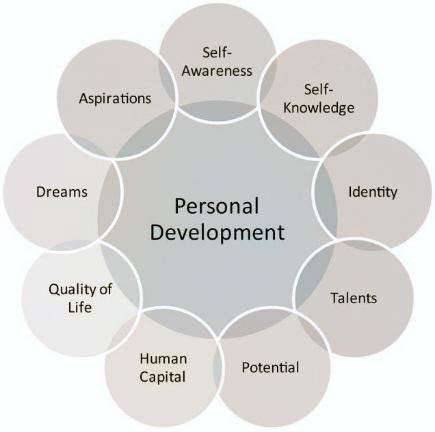
Reviving Ancient Wisdom: The Spiritual Side of Project Management
Last updated: October 17, 2024 Read in fullscreen view
- 01 Aug 2024
 The Standish Group report 83.9% of IT projects partially or completely fail 339/2058
The Standish Group report 83.9% of IT projects partially or completely fail 339/2058 - 13 Apr 2024
 Lessons on Teamwork and Leadership from Chinese story book "Journey to the West" 81/1084
Lessons on Teamwork and Leadership from Chinese story book "Journey to the West" 81/1084 - 02 Nov 2021
 What is Terms of Reference (ToR)? 46/1564
What is Terms of Reference (ToR)? 46/1564 - 13 Oct 2021
 Outsourcing Software Development: MVP, Proof of Concept (POC) and Prototyping. Which is better? 40/486
Outsourcing Software Development: MVP, Proof of Concept (POC) and Prototyping. Which is better? 40/486 - 18 Oct 2020
 How to use the "Knowns" and "Unknowns" technique to manage assumptions 38/1089
How to use the "Knowns" and "Unknowns" technique to manage assumptions 38/1089 - 13 Oct 2025
 Mastering the Dynamic Squad Model: A Modern Approach to Agile Teams 35/179
Mastering the Dynamic Squad Model: A Modern Approach to Agile Teams 35/179 - 12 Oct 2022
 14 Common Reasons Software Projects Fail (And How To Avoid Them) 31/567
14 Common Reasons Software Projects Fail (And How To Avoid Them) 31/567 - 19 Oct 2021
 Software development life cycles 29/701
Software development life cycles 29/701 - 03 Apr 2022
 Microsoft Solutions Framework (MSF) 29/1273
Microsoft Solutions Framework (MSF) 29/1273 - 05 Feb 2024
 Ego and Attachment: Simplify Your Life Today 26/275
Ego and Attachment: Simplify Your Life Today 26/275 - 01 Oct 2020
 Fail fast, learn faster with Agile methodology 24/1047
Fail fast, learn faster with Agile methodology 24/1047 - 14 Oct 2021
 Advantages and Disadvantages of Time and Material Contract (T&M) 22/864
Advantages and Disadvantages of Time and Material Contract (T&M) 22/864 - 13 Dec 2020
 Move fast, fail fast, fail-safe 20/323
Move fast, fail fast, fail-safe 20/323 - 18 Aug 2022
 What are the consequences of poor requirements with software development projects? 20/274
What are the consequences of poor requirements with software development projects? 20/274 - 06 Feb 2021
 Why fail fast and learn fast? 19/450
Why fail fast and learn fast? 19/450 - 04 Oct 2021
 Product Validation: The Key to Developing the Best Product Possible 17/320
Product Validation: The Key to Developing the Best Product Possible 17/320 - 23 Sep 2021
 INFOGRAPHIC: Top 9 Software Outsourcing Mistakes 17/439
INFOGRAPHIC: Top 9 Software Outsourcing Mistakes 17/439 - 07 Oct 2025
 Case Study: Using the “Messaging House” Framework to Build a Digital Transformation Roadmap 17/86
Case Study: Using the “Messaging House” Framework to Build a Digital Transformation Roadmap 17/86 - 05 Sep 2023
 The Cold Start Problem: How to Start and Scale Network Effects 17/203
The Cold Start Problem: How to Start and Scale Network Effects 17/203 - 18 Dec 2023
 The Cone of Uncertainty in Scrum & Requirement Definition 17/701
The Cone of Uncertainty in Scrum & Requirement Definition 17/701 - 01 Mar 2023
 Bug Prioritization - What are the 5 levels of priority? 17/235
Bug Prioritization - What are the 5 levels of priority? 17/235 - 10 Nov 2022
 Poor Code Indicators and How to Improve Your Code? 16/231
Poor Code Indicators and How to Improve Your Code? 16/231 - 31 Aug 2022
 What are the best practices for software contract negotiations? 16/260
What are the best practices for software contract negotiations? 16/260 - 05 Mar 2021
 How do you minimize risks when you outsource software development? 16/336
How do you minimize risks when you outsource software development? 16/336 - 19 Oct 2021
 Is gold plating good or bad in project management? 15/816
Is gold plating good or bad in project management? 15/816 - 12 Aug 2022
 What is End-to-end project management? 15/444
What is End-to-end project management? 15/444 - 26 Sep 2024
 Successful Project Management Techniques You Need to Look Out For 14/401
Successful Project Management Techniques You Need to Look Out For 14/401 - 10 Apr 2024
 The Parking Lot Method: Unlocking a Simple Secret to Supercharge Your Productivity 14/481
The Parking Lot Method: Unlocking a Simple Secret to Supercharge Your Productivity 14/481 - 19 Apr 2021
 7 Most Common Time-Wasters For Software Development 14/556
7 Most Common Time-Wasters For Software Development 14/556 - 18 Oct 2021
 Key Elements to Ramping Up a Large Team 13/1198
Key Elements to Ramping Up a Large Team 13/1198 - 28 Jul 2022
 POC, Prototypes, Pilots and MVP: What Are the Differences? 13/697
POC, Prototypes, Pilots and MVP: What Are the Differences? 13/697 - 05 Jun 2023
 Fractional, Part-Time (virtual) or Interim CTO: Who Will Cover Your Business Needs? 13/147
Fractional, Part-Time (virtual) or Interim CTO: Who Will Cover Your Business Needs? 13/147 - 07 Jul 2022
 Managing Project Execution Terms 12/411
Managing Project Execution Terms 12/411 - 28 Oct 2022
 Build Operate Transfer (B.O.T) Model in Software Outsourcing 12/405
Build Operate Transfer (B.O.T) Model in Software Outsourcing 12/405 - 08 Oct 2022
 KPI - The New Leadership 12/602
KPI - The New Leadership 12/602 - 31 Oct 2021
 Tips to Fail Fast With Outsourcing 12/392
Tips to Fail Fast With Outsourcing 12/392 - 23 Jun 2024
 Best Practices for Managing Project Escalations 11/207
Best Practices for Managing Project Escalations 11/207 - 04 Oct 2022
 Which ERP implementation strategy is right for your business? 11/313
Which ERP implementation strategy is right for your business? 11/313 - 10 Dec 2023
 Pain points of User Acceptance Testing (UAT) 11/452
Pain points of User Acceptance Testing (UAT) 11/452 - 20 Jul 2022
 Software Myths and Realities 10/891
Software Myths and Realities 10/891 - 06 Jun 2022
 Change Management at the Project Level 10/309
Change Management at the Project Level 10/309 - 02 May 2022
 What Is RAID in Project Management? (With Pros and Cons) 10/813
What Is RAID in Project Management? (With Pros and Cons) 10/813 - 13 Jan 2020
 Quiz: Test your understanding project cost management 10/609
Quiz: Test your understanding project cost management 10/609 - 12 Dec 2021
 Zero Sum Games Agile vs. Waterfall Project Management Methods 10/409
Zero Sum Games Agile vs. Waterfall Project Management Methods 10/409 - 17 Feb 2022
 Prioritizing Software Requirements with Kano Analysis 10/304
Prioritizing Software Requirements with Kano Analysis 10/304 - 28 Dec 2021
 8 types of pricing models in software development outsourcing 10/437
8 types of pricing models in software development outsourcing 10/437 - 14 Jun 2022
 Example and Excel template of a RACI chart in Software Development 10/804
Example and Excel template of a RACI chart in Software Development 10/804 - 22 May 2022
 What are common mistakes that new or inexperienced managers make? 9/286
What are common mistakes that new or inexperienced managers make? 9/286 - 18 Jul 2021
 How To Ramp Up An Offshore Software Development Team Quickly 9/593
How To Ramp Up An Offshore Software Development Team Quickly 9/593 - 02 Nov 2022
 Difference between Change Management and Project Management 9/232
Difference between Change Management and Project Management 9/232 - 24 Nov 2023
 The project management paradox: Achieving MORE by doing LESS 9/218
The project management paradox: Achieving MORE by doing LESS 9/218 - 05 Jan 2024
 Easy ASANA tips & tricks for you and your team 9/200
Easy ASANA tips & tricks for you and your team 9/200 - 11 Jan 2024
 What are the Benefits and Limitations of Augmented Intelligence? 9/477
What are the Benefits and Limitations of Augmented Intelligence? 9/477 - 12 Mar 2024
 How do you create FOMO in software prospects? 9/167
How do you create FOMO in software prospects? 9/167 - 03 Feb 2024
 "Kham Nhẫn" in Business: A Guide to Patience and Resilience 9/165
"Kham Nhẫn" in Business: A Guide to Patience and Resilience 9/165 - 03 Feb 2024
 "Kham Nhẫn" in Business: A Guide to Patience and Resilience 9/165
"Kham Nhẫn" in Business: A Guide to Patience and Resilience 9/165 - 07 Dec 2023
 12 project management myths to avoid 8/189
12 project management myths to avoid 8/189 - 27 Jan 2020
 Should a project manager push developers to work more hours due to mistakes of manager schedule setting? 8/434
Should a project manager push developers to work more hours due to mistakes of manager schedule setting? 8/434 - 02 Dec 2021
 3 Ways to Avoid Scope Creep in IT Consulting 8/206
3 Ways to Avoid Scope Creep in IT Consulting 8/206 - 09 May 2022
 Build one to throw away vs Second-system effect: What are differences? 8/316
Build one to throw away vs Second-system effect: What are differences? 8/316 - 15 May 2022
 20 Common Mistakes Made by New or Inexperienced Project Managers 7/280
20 Common Mistakes Made by New or Inexperienced Project Managers 7/280 - 06 Mar 2024
 [SemRush] What Are LSI Keywords & Why They Don‘t Matter 7/176
[SemRush] What Are LSI Keywords & Why They Don‘t Matter 7/176 - 18 Sep 2024
 11 Psychological Defense Mechanisms and How to Recognize Them 6/179
11 Psychological Defense Mechanisms and How to Recognize Them 6/179 - 26 Dec 2023
 Improving Meeting Effectiveness Through the Six Thinking Hats 6/254
Improving Meeting Effectiveness Through the Six Thinking Hats 6/254 - 12 Aug 2024
 Understanding Google Analytics in Mumbai: A Beginner's Guide 6/99
Understanding Google Analytics in Mumbai: A Beginner's Guide 6/99 - 03 Jan 2023
 Organizing your agile teams? Think about M.A.T (Mastery, Autonomy, Purpose) 6/375
Organizing your agile teams? Think about M.A.T (Mastery, Autonomy, Purpose) 6/375 - 14 Mar 2024
 Why should you opt for software localization from a professional agency? 6/140
Why should you opt for software localization from a professional agency? 6/140 - 10 May 2022
 Levels of Teamwork 6/197
Levels of Teamwork 6/197 - 17 Oct 2021
 Does Fast Tracking increase project cost? 6/368
Does Fast Tracking increase project cost? 6/368 - 06 Nov 2019
 How to Access Software Project Size? 6/249
How to Access Software Project Size? 6/249 - 01 Dec 2023
 Laws of Project Management 5/302
Laws of Project Management 5/302 - 30 Nov 2023
 Project Managers, Focus on Outcomes — Not Deliverables 5/159
Project Managers, Focus on Outcomes — Not Deliverables 5/159 - 01 Mar 2024
 10 Project Management Myths 5/143
10 Project Management Myths 5/143 - 26 Nov 2024
 Harnessing Time Management Skills for Remote Team Effectiveness 4/203
Harnessing Time Management Skills for Remote Team Effectiveness 4/203 - 01 Aug 2022
 Is planning "set it and forget it" or "set it and check it"? 3/277
Is planning "set it and forget it" or "set it and check it"? 3/277 - 01 May 2024
 Warren Buffett’s Golden Rule for Digital Transformation: Avoiding Tech Overload 3/205
Warren Buffett’s Golden Rule for Digital Transformation: Avoiding Tech Overload 3/205 - 21 Jun 2024
 Dead Horses and the Escalation of Commitment 2/138
Dead Horses and the Escalation of Commitment 2/138 - 18 Feb 2026
 "Hit and Run" Project Management: Balancing Speed with Sustainability 2/7
"Hit and Run" Project Management: Balancing Speed with Sustainability 2/7
The Roots of Project Management
Project management has deep, often overlooked, historical roots in spirituality. From the monumental pyramids of ancient Egypt to the awe-inspiring cathedrals of Europe, many of humanity’s greatest projects were driven by spiritual beliefs. These grand structures were not just feats of engineering; they served as sacred spaces that connected people to something greater, emphasizing the importance of meaning and purpose in human endeavors.
The Evolution of Projects
As civilization advanced, project management shifted from mere construction to complex domains like IT, pharmaceuticals, and aerospace. Despite these changes, modern project managers still seek the creativity and innovation found in earlier projects. They aim to inspire their teams in the same way that ancient builders sought to honor the divine.
Spirituality in the Workplace
Spirituality, which encompasses the search for meaning and connection, is crucial in project management. It’s not about religion; instead, it’s about understanding what gives life purpose. When project teams openly acknowledge spirituality, they can harness its potential for project success, tapping into all four forms of human energy: physical, intellectual, emotional, and spiritual.
The Heart of Mindful Leadership
- Empathy
- Self-Awareness
- Self-Regulation
- Relationship Management
The Resistance to Spirituality
Many professionals feel uneasy discussing spirituality in the workplace, often equating it with religion. Concerns about proselytizing or conflict can stifle these conversations. However, organizations are increasingly recognizing the value of spirituality in enhancing workplace culture and productivity. Major companies like Ford and Boeing have embraced these ideas, fostering environments where spiritual values are respected and integrated.
The Benefits of Spiritual Integration
Integrating spirituality into project management can lead to numerous positive outcomes, including greater job satisfaction, creativity, and ethical behavior. When team members find personal meaning in their work, they are more likely to invest their energy into the project, resulting in increased engagement and success.
Creating a Safe Space for Spirituality
To begin integrating spirituality, project managers should foster an environment where team members feel safe discussing their beliefs and values. A simple brainstorming session on concepts like faith, spirituality, and religion can open the door to deeper discussions and understanding, helping to align team values with project goals.
Practicing Deep Listening
Developing the skill of deep listening is essential for project managers aiming to create a spiritually supportive environment. This involves listening not just to what is said but also to what is felt. By encouraging open dialogue and reflection, project managers can help teams connect more deeply with their work and with each other.
Here are some guidelines to consider when starting a program focused on spirituality and project management:
- Define Spirituality: Focus on spirituality as a quest for meaning, purpose, and the desire to make a positive impact.
- Avoid Proselytizing: Keep discussions free from religious promotion or conversion attempts.
- Recognize Spirituality in Everyone: Acknowledge that everyone has a spiritual aspect to their being.
- Embrace Diverse Experiences: Be open to listening to and valuing the varied life experiences of team members.
- Establish Common Values: Identify values and principles that the entire team can agree upon.
- Foster a Culture of Diversity: Commit to creating an environment that appreciates and respects diversity.
A project manager could explore the following five approaches:
- Alignment: Ensure that the team's vision, meaning, and purpose are harmonized.
- Spiritual Leadership: Embrace the role of a servant leader, dedicated to empowering team members to do the same for one another.
- Esprit de Corps: Recognize and celebrate the collective spirit of the team.
- Communication: Employ unconventional communication methods to foster trust and openness.
- Creativity: Acknowledge that inspiration stems from the spirit and incorporate group spiritual practices from various wisdom traditions to enhance problem-solving.
A Spiritual Approach to Project Management
To implement a spiritual approach, project managers can focus on aligning the team's vision and purpose. Activities like nature retreats, where team members reflect on their personal and collective goals, can enhance this connection. Such practices not only foster creativity but also reinforce the shared commitment to the project.
Conclusion: Navigating the VUCA World with Spiritual Intelligence
In today's VUCA (Volatile, Uncertain, Complex, and Ambiguous) world, the integration of spirituality in project management is more relevant than ever. As artificial intelligence and rapid technological changes transform the landscape, the ability to lead with wisdom, compassion, and a sense of purpose can distinguish successful leaders. Embracing spiritual intelligence allows project managers to not only navigate challenges but also inspire their teams to achieve remarkable outcomes. By recognizing the spiritual dimensions of their work, they can create environments where both individuals and projects thrive.













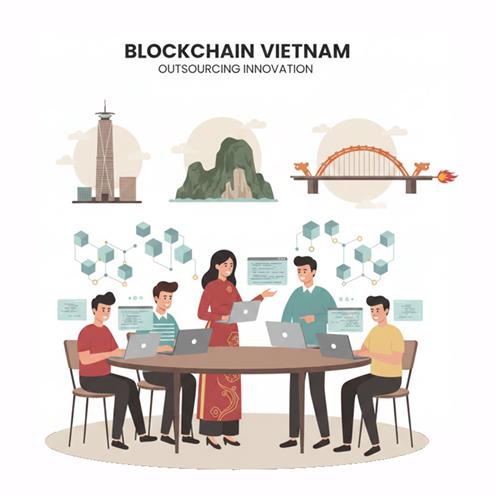
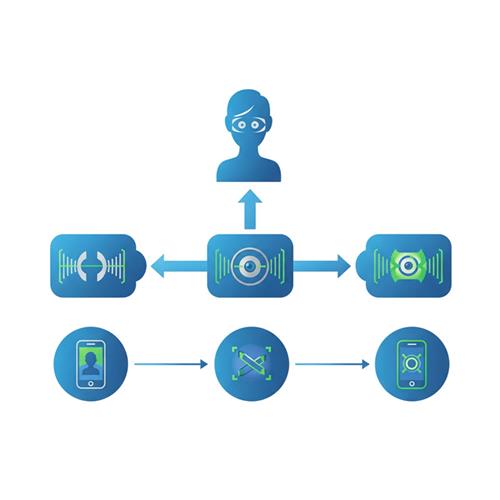

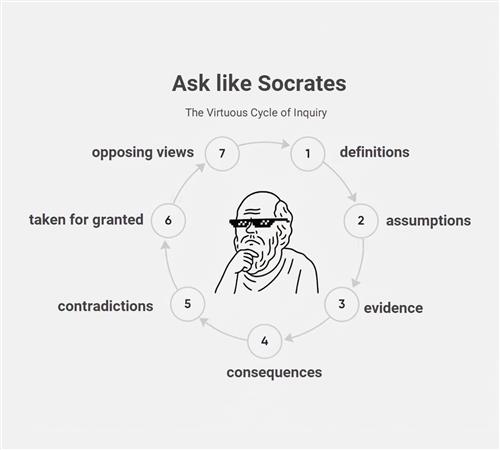


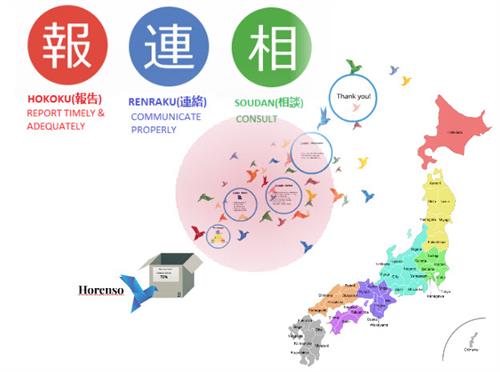


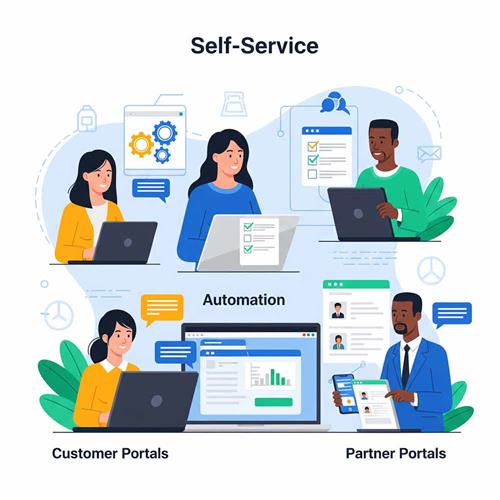
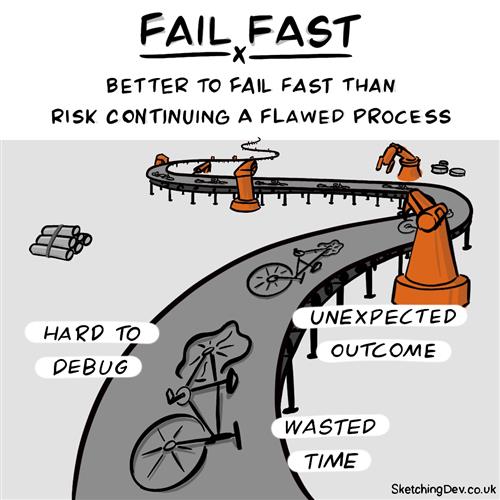










 Link copied!
Link copied!
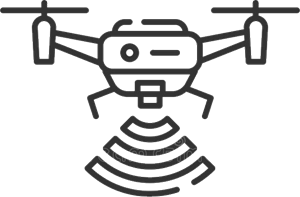 Recently Updated News
Recently Updated News